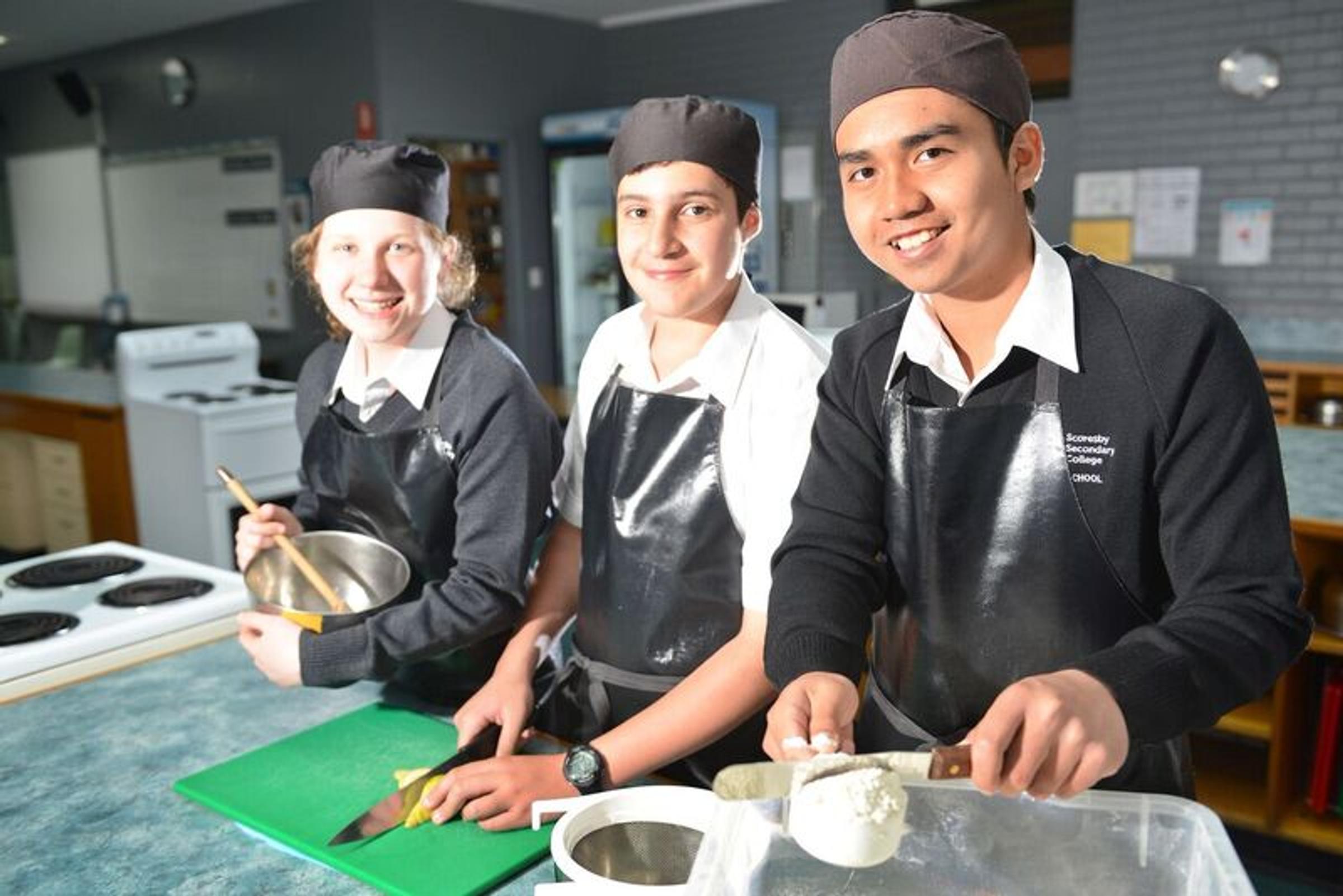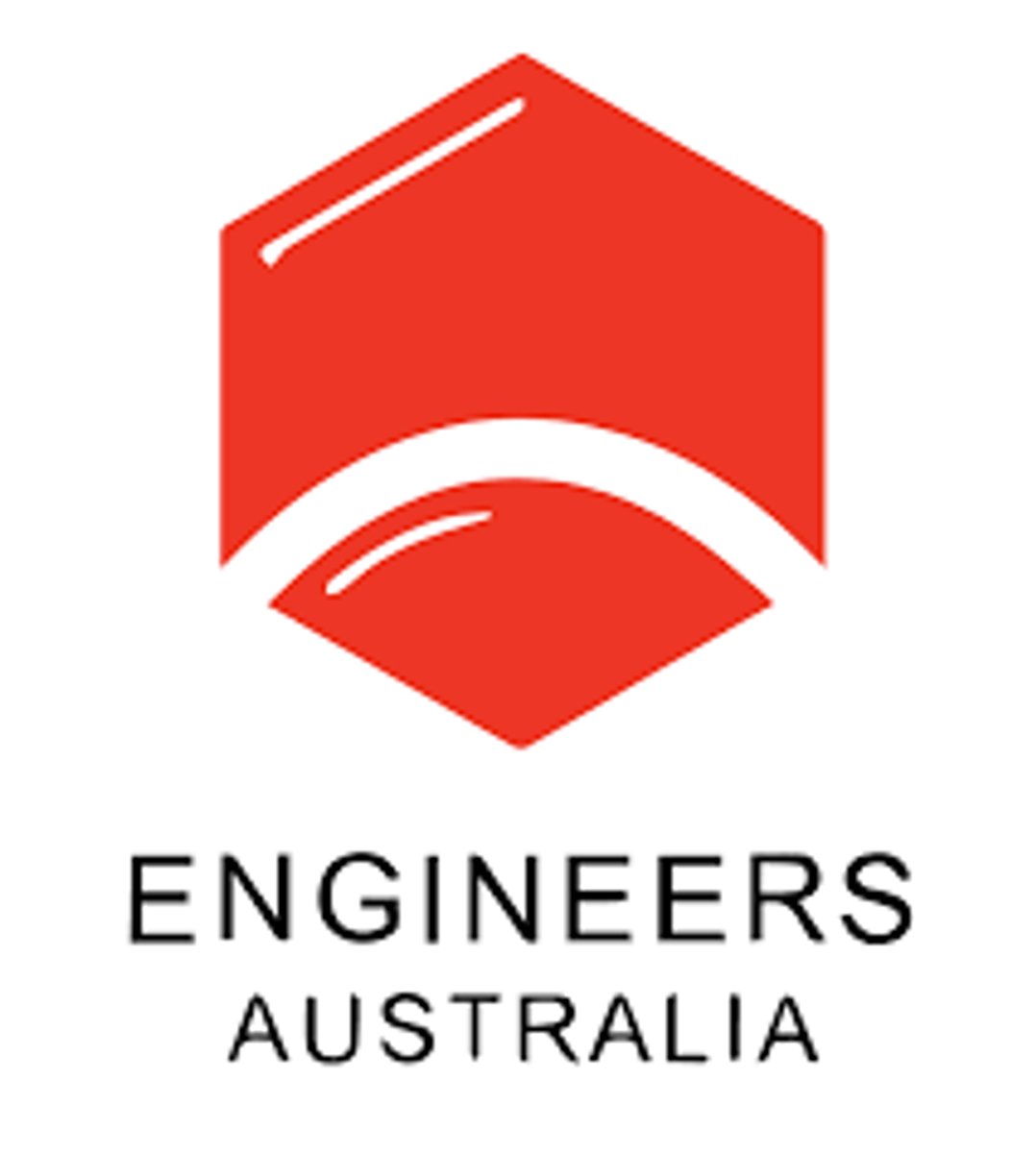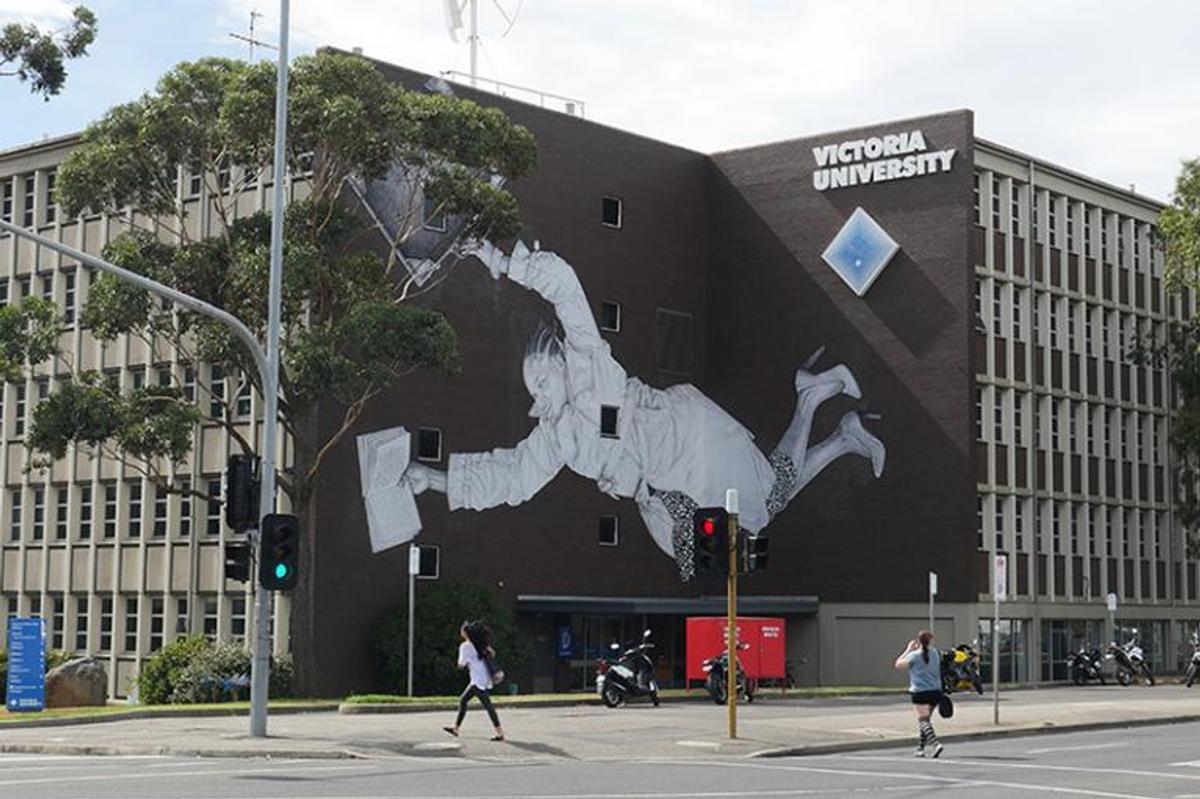Careers

Careers News
I hope you have all managed to enjoy some of the sunshine over the last week. We have been busy over the last weeks with subject selection, course and pathway exploration and selection for Senior School, Year 12 students are looking at VTAC course applications, and all the things to get them ready for their future beyond secondary school.
Please remember I am available from Monday to Thursday for any career related discussion. Please email me careers@scoresbysc.vic.edu.au if you have any questions or would like to set up a time to meet.
Here is the latest careers news.
Dates to Diarise in Term 3
- University / TAFE Open Days 2021 – throughout August
- Year 12 VTAC timely applications – throughout August and September
- VTAC SEAS and Scholarship applications – throughout August and September
What is Engineering?
The Engineering Australia website states that Engineering is an occupation with extremely wide reach. The term 'engineering' covers many fields and, by extension, many skills. Engineers are scientists, inventors, designers, builders, and great thinkers. They improve the state of the world, amplify human capability, and make people's lives safer and easier.
There are so many different types of engineering, and students are encouraged to browse the following link, and watch the useful YouTube clips available at that link -
Engineers Australia - Types of Engineering.
Whitehouse Institute of Design
Whitehouse Institute of Design, Australia offers specialist higher education degrees and vocational education and training certificate courses at both Sydney and Melbourne campuses.
Courses on offer by this private provider include –
Bachelor of Design
Three specialisations on offer: Fashion Design, Interior Design, or Creative Direction & Styling.
Certificate IV in Design-An 18-week intensive program providing students a unique opportunity of direct entry into one of Whitehouse's Bachelor of Design courses in either Fashion Design, Creative Direction & Styling or Interior Design.
Find out more about this institution, costs of courses, etc. visit Whitehouse Institute of Design.
Career as a Financial Planner
The Good Universities Guide states that financial planners develop and implement financial plans for individuals covering all areas of finance, including taxation, retirement, superannuation, insurance and estate planning. Financial planning is a discipline on its own – one does not have to be an accountant to be a financial planner. There are number courses offered at universities in business, commerce, finance, economics and it is important to also note that should students wish to become a financial planner, the course they choose must be accredited by ASIC (Australian Securities and Investment Commission) or they may not be eligible to provide financial advice.
Careers in the Equine Industry
There are numerous careers in the equine industry, and a broad range of courses on offer at TAFE, university, and private colleges. The Ranvet website provides a great summary of jobs in the equine industry.
Some of these jobs include –
- Equine Veterinarian: Equine veterinarians look after everything health related with your horse. They provide health care and advice on what is best for your horse as well as performing procedures and surgeries.
Course: Bachelor of Veterinary Medicine, Doctor of Veterinary Medicine - Equine Veterinary Nurse/Technician: Equine veterinary technicians/nurses provide assistance to veterinarians as they complete exams and surgical procedures.
Course: Certificate IV in Veterinary Nursing, Bachelor of Veterinary Technology
- Farrier: Farriers are responsible for trimming, shoeing, and maintaining horse’s hooves. Most farriers learn the trade via apprenticeship or via a course. This job can be physically demanding.
Course: Certificate III in Farriery
- Mounted Police Officer: Mounted police officers use their horses to discourage crime whilst providing crowd control. Mounted police officers must perform general duties for 3 years before joining the mounted police.
Course: Bachelor of Policing, Diploma of Policing, training through Victoria Police
- Breeding (Broodmare/Stallion) Manager: Breeding managers supervise mares, foals and stallions whilst keeping detailed production records. In larger organisations there may be a stallion manager and a broodmare manager.
Course: Certificate III in Horse Breeding
- Racehorse Trainer: Racehorse trainers’ condition and train the horses they are in charge of for race meets.
Course: Certificate IV in Racing (Racehorse Trainer)
- Jockey/Track Rider: A jockey/track rider rides racehorses according to the trainer’s instructions. Jockeys can ride multiple races each day, as well as working horses in the morning with track riders.
Course: Certificate III in Racing (Track Rider)
- Stable Hand/Groom: Grooms provide daily care for horses in their care. They can be responsible for cleaning stalls, washing horses, tacking up and traveling with the horses they are looking after.
Courses: Certificate III in Racing (Advanced Stable Hand), Certificate II in Racing (Stable Hand) - Bloodstock Agent: These agents evaluated horses at auction and bid on them on behalf of client as well as purchasing horses on behalf of clients. They also track down specific bloodlines for breeding and have a good knowledge of pedigrees and conformation.
- Equine Health Practitioner: This can include but is not limited to an equine chiropractor, massage therapist, acupuncturist, and physiotherapist. The job can require travel to elite horse events and stables to treat horses. There is still course work and qualifications to become a health practitioner.
- Show management: For a show to happen and be successful, there are many people behind the scenes that help make things run smoothly. The staff at a horse show often includes managers, officials, course designers, ring stewards, scribes, and scorekeepers.
- Rider agent: Agents help manage top riders’ careers and book the riders shows or races all over the world. Agents may have a business or PR background and may need to handle travel and sponsorships for their riders.
- Equine transport provider: Equine transporters haul horses by truck as well as fly them around the world for competitions or for sale. It requires knowledge of horses and how to handle them in addition to logistics.
Marcus Oldham College is a reputable private college that offers a range of courses in agriculture and equine studies, including –
Diploma of Equine Management – this intensive one-year program aims to equip students with the practical husbandry and business skills necessary for a successful career in their chosen field. The course is structured equally into three broad areas: practical and horse management skills, equine science, and business management. Graduates will be able to work as handlers, overseers and managers in studs and broodmare farms.
Situated on 200 hectares near Geelong Victoria, close to the beaches of the Great Ocean Road and 1-hour from Melbourne, Marcus provides accommodation equipped with private bed/study rooms, internet access, games and TV rooms, outdoor sports facilities, indoor gym, and library. All meals are provided daily in our College Dining Room and during leisure hours, students can enjoy a range of social and sporting activities within Marcus and surrounding universities, clubs, and organisations.
Interested students are invited to watch the following YouTube clip - Diploma of Equine Management – Marcus Oldham.
Pathways to Medicine at Monash University
Monash University offers both direct entry and graduate entry into its medicine program, giving students two potential pathways to studying the Bachelor of Medical Science and Doctor of Medicine (MD). Monash has developed a new video explaining both potential pathways, including the admissions requirements and application process. Watch the video here.
| INSTITUTION | LAW COURSES IN VICTORIA | ATAR FOR 2021 |
Australian Catholic University Visit ACU - Law M – Melbourne campus | Laws | 73.20 |
| Arts/Laws | 76.35 | |
| Biomedical Science/Laws | 76.20 | |
| Business Administration/Laws | 75.05 | |
| Commerce/Laws | 75.60 | |
| Laws/Global Studies | 75.60 | |
| Philosophy/Laws | n/a | |
| Psychological Science/Laws | 76.75 | |
Deakin University Visit Deakin - Law G – Geelong Waterfront campusM – Melbourne campus | Laws | 84.00 (G), 90.00 (M) |
| Arts/Laws | 85.60 (G), 91.35 (M) | |
| Commerce/Laws | 85.25 (G), 91.05 (M) | |
| Criminology/Laws | 85.05 (G), 91.45 (M) | |
| Laws/Cybersecurity | 85.20 (G), n/a (M) | |
| Laws/International Studies | 85.45 (G), 91.25 (M) | |
| Property & Real Estate/Laws | n/a (M) | |
| Science/Laws | 91.75 (M) | |
La Trobe University Visit La Trobe - Law B – Bendigo campusM – Melbourne campus | Laws | n/a (B), 90.55 (M) |
| Commerce/Laws | 90.05 (M) | |
| Laws/Arts | n/a (B), 90.70 (M) | |
| Law (Honours)/Biomedical Science | 90.05 (M) | |
| Laws/Business | n/a (B) | |
| Laws/Criminology | n/a (B), 90.10 (M) | |
| Laws/International Relations | 93.10 (M) | |
| Laws/Media and Communication | 92.25 (M) | |
| Laws/Politics, Philosophy and Economics | 90.00 (M) | |
| Laws/Psychological Science | n/a (B), 91.65 (M) | |
| Laws/Science | n/a (B), 96.60 (M) | |
Monash University Visit Monash - Law Cl – Clayton campus | Laws (Honours) | 97.00 |
| Law (Honours)/Arts | 97.00 | |
| Law (Honours)/Biomedical Science | 97.25 | |
| Laws (Honours)/Commerce | 97.10 | |
| Laws/Computer Science | n/a | |
| Laws (Honours)/Criminology | 97.00 | |
| Law (Honours)/Engineering | 97.05 | |
| Law (Honours)/Global Studies | 97.05 | |
| Laws/Information Technology | 97.65 | |
| Laws (Honours)/Music | Range of Criteria (RC) | |
| Laws/ Politics, Philosophy and Economics | 97.05 | |
| Laws (Honours)/Science | 97.00 | |
| RMIT University Visit RMIT - Law C – City campus | Laws | 85.25 |
| Laws/Economics | 88.05 | |
| Laws/Information Systems | n/a | |
Swinburne University Visit Swinburne - Law H – Hawthorn campus | Laws | 85.20 |
| Laws/Arts | 86.35 | |
| Laws/Aviation Management | n/a | |
| Laws/Business | 85.50 | |
| Laws/Business Information Systems | n/a | |
| Law/Computer Science | n/a | |
| Law/Criminal Justice & Criminology | 86.70 | |
| Laws/Engineering | n/a | |
| Laws/Media and Communication | n/a | |
| Laws/Science | n/a | |
Victoria University Visit Victoria - LawC – City campus C & F – City and Footscray Park | Laws | 80.45 (C) |
| Laws/Arts | n/a (C & F) | |
| Laws/Business | 82.00 (C & F) | |
| Law/Criminology | 82.80 (C) | |
| Laws/Psychological Studies | n/a (C & F) | |
| Laws/Psychology | n/a (C & F) |
Paralegal Degrees in Victoria in 2021
A paralegal is an individual, qualified by education, training or work experience who is employed or retained by a lawyer, law office, corporation, governmental agency, or other entity and who performs specifically delegated substantive legal work for which a lawyer is responsible. In other words, a paralegal works in the legal industry but is not a lawyer. Below are a number of courses on offer in Victoria. The prerequisite VCE subject is usually an English.
COURSE | INSTITUTION | MAJOR STUDIES IN 2021 | ATAR 2021 |
DEAKIN
| Crime, Crime prevention, Criminal behaviour, Criminal justice, Criminology, Criminology research methods, Criminology theory, Environmental crime, Media and crime, Organised crime, Policing, Psychology, Punishment, Risk, Security, Social science, Society, Surveillance, Terrorism, Transnational crime, Victimology, Violence. | 55.65 (G) 60.10 (M) | |
| Analytical chemistry, Biochemistry, Chemistry, Chemistry (analytical), Chemistry (forensic), Chemistry (medical), Chemistry (organic), Criminology, Forensic analysis, Forensic biology, Forensic chemistry, Forensic investigation, Forensic science, Genetics, Hazardous materials and processes, Molecular and cell biology. | 60.40 (G) | |
FEDERATION | Behavioural Studies (Psychology), Community and Human Services, Criminology and Criminal Justice, Social Sciences. | 32.75 (Be)49.80 (Gi) 40.70 (Ba) | |
LA TROBE | Access to Justice, Corrections, Crime and Culture, Crime and Inequality, Crime and criminal justice policy, Crime prevention, Criminal justice, Criminal justice administration, Criminological theory and practice, Criminology, Criminology research methods, Ethics, Forensics, Justice, Policing, Psychology, Punishment, Restorative justice, Risk, Security, Surveillance, Terrorism, Transnational crime, Victimology. | 66.25 (B) 62.60 (M) | |
MONASH | Crime, Crime and justice, Criminal justice system, Criminology. | 80.00 (Cl) | |
RMIT
| Corrections, Crime prevention, Criminal justice administration, Criminal psychology, Criminology, Dispute Resolution, Forensic investigation, Gendered Violence, Information security, International law, International security, Judicial studies, Justice, Law (court processes), Law (criminal), Law (evidence), Organisational Management, Police administration, Police studies, Professional Ethics, Social Justice, Youth justice. | 77.25 © | |
| Corrections, Crime prevention, Criminal justice administration, Criminology, Customs, Forensic investigation, Forensic psychology, Global justice, Information security, Justice, Law (court processes), Law (criminal), Law (evidence), Law enforcement, Legal studies, Police studies, Psychological testing and assessment, Psychology, Psychology (cognitive), Psychology (developmental), Psychology (personality), Psychology (social), Psychopathology, Youth justice. | 73.00 (C) | ||
| Dispute resolution and mediation, Human rights, Justice, Law, Law (civil and criminal procedure), Law (civil obligations), Law (criminal), Law (evidence), Law (family), Law (information), Law (labour relations), Legal practice, Legal studies, Organisational processes, Social sciences, Sociology. | 70.65 (C) | ||
| Business and Corporate Law, Civil Procedure & Dispute Resolution, Contract Law, Criminal Law, Evidence Law, Family Law, Intellectual Property Law and Trade Practices, Land Law & Conveyancing, Legal Research, Paralegal, Probate and Administration, Tort Law, Wills. | 53.35 (C) | ||
SWINBURNE | Advanced topics in criminology, Advanced topics in forensic psychology, Corrections systems and practice, Crime and punishment in the international context, Crime society and culture, Criminal law and process, Criminology theory and practice, Deviance difference and conformity, Introduction to forensic psychology, Introduction to law, Law and social science, Policing systems and practice, Psychology, Sentencing, Technological advances in dealing with crime, Youth justice and crime. | 60.10 (H) | |
MELBOURNE
| Ancient world studies, Anthropology, Arabic studies, Art history, Asian studies, Chinese societies (minor), Chinese studies, Classics, Creative writing, Criminology, Development studies (minor), Economics, English and theatre studies, English language studies (minor), Environmental studies (minor), European studies (minor), French studies, Gender studies, Geography, German studies, Hebrew and Jewish studies, History, History and philosophy of science, Indigenous studies, Indonesian studies, Islamic studies, Italian studies, Japanese studies, Knowledge and learning (minor), Law and justice (minor), Linguistics and applied linguistics, Media and communications, Philosophy, Politics and international studies, Psychology, Russian studies, Screen and cultural studies, Sociology, Spanish and Latin American studies. | 85.00 (P) | |
VICTORIA | Criminal justice. | n/a (F) | |
| Criminal justice, Psychology. | n/a (F) | ||
| Criminology. | n/a (CQ) | ||
| Advanced legal services, Law profession. | n/a (C)(F) | ||
| Criminal justice, Youth work. | n/a (W) |
Snapshot of Victoria University (VU) in 2021
- More than 45,000 students from around the world study at one of VU’s many campuses, with its largest one being Footscray Park - VU Campuses
- VU has a number of academic colleges including arts, business, education, engineering, law & justice, science, sport and exercise science - VU Academic Colleges
- VU has very strong industry connections with over 900 industry partnerships, including the Western Bulldogs, Melbourne Victory, Western Health, City West Water, and various others - VU Industry Connections
- VU has agreements with over 100 exchange partner institutions worldwide - VU Exchange Partners. Students can gain credit towards their degree by studying for a year or a semester with one of the international exchange partners - VU Study on Exchange
- VU is a dual-sector institution, offering both vocational training (TAFE) and higher education with very accessible transition between courses at all levels. These pathways mean that a student’s dream qualification is within reach, regardless of their study background, prior experience, or their ATAR score - VU Pathways
- VU is one of Australia’s leading sport universities, ranking # 12 globally for sport science education - VU - Leading Sport University
- VU sport students will gain behind-the-scenes access at Real Madrid Football Club through a new partnership signed early in 2015 - VU Real Madrid Partnership
- Within the Law & Justice College, VU offers a number of courses from certificates and diplomas to postgraduate degrees, giving students more options to achieve their goals while balancing life and study commitments through flexible pathways - VU Law & Justice College
- VU is one of only two universities in Victoria that offers a course in osteopathy - Osteopathy at VU
- VU is the only university offering a dermal therapies degree in Victoria - VU Dermal Therapies Degree
- VU offers a number of courses linked to clinical practice and have dedicated clinics where current students put into practice that which they have learnt. Courses linked to clinics include dermal therapies, massage, osteopathy, psychology - VU Health Clinics
- In 2018 VU introduced the VU Block Model - all bachelor degrees taught at the Melbourne campuses see units delivered in a more focused way, one at a time. Students have more one-on-one time with their educators as they complete each unit, and experience a significantly more immersive, collaborative, and enriching learning experience. Initially for first-year students, the VU Block Model is now offered to students in all degree years.
Virtual Open Days 2021
INSTITUTION OPEN DAY EVENTS | DATE | TIME | CONTACT DETAILS |
Australian Catholic University Melbourne Campus Virtual Tour Ballarat Campus Virtual Tour |
Sat 7 & Sun 8 August*
|
| 1300 275 228 Email: opendayvic@acu.edu.au https://www.acu.edu.au/student-life/experience-uni-before-you-start/open-day *Online Open Day |
| Australian National UniversityVirtual Tour | Sat 14 August | 9am – 4pm | https://openday.anu.edu.au/ - students should register their interest |
| Box Hill Institute of TAFE |
Various days in August |
Various times | 1300 269 445 |
| Australian College of Arts (Collarts) | Sat 28 August* | https://www.collarts.edu.au/open-day *On campus and online | |
| CQUniversity | Sat 14 August* | 9am – 1pm | 13 27 86https://www.cqu.edu.au/events/event-items/open-day/interactive-virtual-open-day-august *Online Open Day |
| Charles Sturt UniversityAlbury-Wodonga | Sun 15 August* | 10am – 3pm | https://study.csu.edu.au/life/events/open-day *Online Open Day |
Deakin University & Deakin College All Campuses
|
Sun 15 August* |
9am – 4pm | 1800 334 733 https://www.deakin.edu.au/openday *Online Open Day(03) 9244 5197 Deakin College |
| Federation UniversityVirtual Tour | Sun 15 August* | 10am – 4pm | 1800 333 864https://federation.edu.au/openday *Online Open Day |
Holmesglen Institute All Campuses |
Various days* |
Various times | 1300 639 888 Online bookings are essential www.holmesglen.edu.au/opendays*Online Open Days |
| JMC AcademyVirtual Tour | Sat 21 August | 10am – 2pm | (03) 9624 2917 https://www.jmcacademy.edu.au/events/open-day-events/melbourne-campus-august21-open-day |
La Trobe University & La Trobe College Melbourne Campus Virtual Tour Albury-Wodonga Bendigo Campus Useful info |
Sun 1 August * |
| 1300 135 045 https://www.latrobe.edu.au/openday#experiences *Online Open Day(03) 9479 2417 La Trobe College |
RMIT |
Sun 29 August*
|
10am | 9925 2260 www.rmit.edu.au/openday *Online Open Day |
| SAE QantmSouth Melbourne Campus | Sun 8 August* |
4pm – 6pm
| 1800 723 338https://sae.edu.au/news-and-events/register-for-open-day-2021/ *Online Open Day |
Swinburne University Hawthorn Campus Virtual Tour |
From Mon 26 July* |
10am – 4pm | 1300 SWINBURNE http://www.swinburne.edu.au/openday/ *Online Open Day |
| Torrens University | Tues 17 August* | 4pm – 6pm | 1300 575 803Register for either event at https://www.torrens.edu.au/about/virtual-open-day *Online Open Day |
University of Melbourne Parkville & Southbank Virtual Tour
|
Sun 22 August* |
9am – 5pm | 1800 801 662 https://openday.unimelb.edu.au/ *Online Open Day |
| University New South Wales (UNSW)Canberra Campus (ADFA) Virtual Tour Sydney Campus Virtual Tour | Sat 21 AugustSat 4 September | tbc10am – 4pm | 1300 864 679https://www.defence.gov.au/ADFA/visitingadfa.asphttps://www.events.unsw.edu.au/event/unsw-open-day-0 |
| University of Sydney | 1800 793 864 | ||
| Virtual Tour | Sat 28 August* | 10am – 4pm | http://openday.sydney.edu.au/ *Online Open Day |
Victoria University Footscray Park Campus Virtual Tour City Flinders Campus Virtual TourCity Queen Campus Virtual Tour |
Sat 21 August* |
12pm – 6pm | 1300 842 864 https://www.vu.edu.au/open-day-2021*Online Open Day |
| William Angliss Institute of TAFE | Sat 14 August* |
10am – 3pm | 1300 264 5477 https://www.angliss.edu.au/study-with-us/meet-us/OpenDay/ *Online Open Day |
Getting the most out of an Open Day
Most institutional Open Days are held in late July and August (see over the page for Open Day dates). However, you are more than welcome to contact an institution to arrange a visit any time.
What happens on an Open Day?
On Open Day you can visit an institution when it’s at its best. Everyone is there – academics, lecturers, current students and information officers. More importantly, you can talk with academics, lecturers and current students about what certain courses are actually like, and what is required to get into them.
Who should attend an Open Day?
Anyone who is considering studying at a tertiary level in the next few years should attend.
Why should you attend an Open Day?
Apart from the opportunity to obtain course information there are many other reasons why attending an Open Day is a good idea:
- You are going to feel more comfortable arriving at a university or TAFE institute on the first day of classes if you have been there before.
- What is really involved in the course or courses you are interested in?
- If you have to move away from home, where are you going to live?
- Will you be happier studying in a large metropolitan institution or a smaller, perhaps rural institution?
- What does the place ‘feel’ like? Is it a bustling environment with lots of activity or a quieter, more relaxed campus set in landscaped grounds?
- How are you going to get there? Is it close to public transport or should you start saving now for a car?
If you don’t know the answers to any of these questions, then you should attend an Open Day!
How to make the best of Open Days
To make your Open Day visits fun and informative, here are some pointers:
- Write down a list of questions you would like to ask about particular courses
- Be there early. Crowds tend to develop as the day progresses
- On arrival, get a map from a central point and ask for directions to the relevant faculties or schools
- Ask questions!
- Don’t spend the day collecting printed information only. Use the opportunity to speak directly with academics before applications close
- Introduce yourself to selection officers if you feel it is appropriate, but don’t be pushy
- Check out the residential colleges, if available. After all, it is you that will be living there.
- Walk around the campus. Have a good look! See what sporting facilities and other services are available.
- Enjoy the visit!
Not everyone can attend every Open Day and various Institutions hold their Open Days on the same date! If you cannot attend an Open Day and you are interested in a particular institution, you may visit at other times. If you wish to speak to a particular person, it is essential to make an appointment first.
Getting the most out of a Virtual Open Day
Some institutions may hold a Virtual Open Day will be held in late July and August (see over the page for Open Day dates). However, you are more than welcome to contact an institution at any time for advice on courses.
Who should participate in a Virtual Open Day?
Anyone who is considering studying at a tertiary level in the next few years should attend.
Why should you attend an Open Day?
Apart from the opportunity to obtain course information there are many other reasons for participating:
- You are going to feel more comfortable arriving at a university or TAFE institute on the first day of classes if you have done your research and found out more about the institution.
- What is really involved in the course or courses you are interested in?
- If you have to move away from home, where are you going to live?
- Will you be happier studying in a large metropolitan institution or a smaller, perhaps rural institution?
- What does the place ‘feel’ like? Watch Virtual Tours and try gaining an insight into whether or not it is a bustling environment with lots of activity, or a quieter, more relaxed campus set in landscaped grounds?
- How are you going to get there? Is it close to public transport or should you start saving now for a car?
If you don’t know the answers to any of these questions, then you should participate in a Virtual Open Day
How to make the best of Virtual Open Days
To make your Virtual Open Day activity fun and informative, here are some pointers:
- Write down a list of questions you would like to ask about particular courses – if they are not addressed during the virtual event, you can always follow up with the institutions later
- If the event allows Q & A, make sure you ask lots of questions!
- Enjoy the activity!
Not everyone can participate in every Virtual Open Day and various institutions are also holding their Virtual Open Days on the same date, so students are encouraged to register for as many as possible so that even if you miss one, you should receive notifications from the institutions.
Ms Bronwyn Haines
Careers Coordinator










